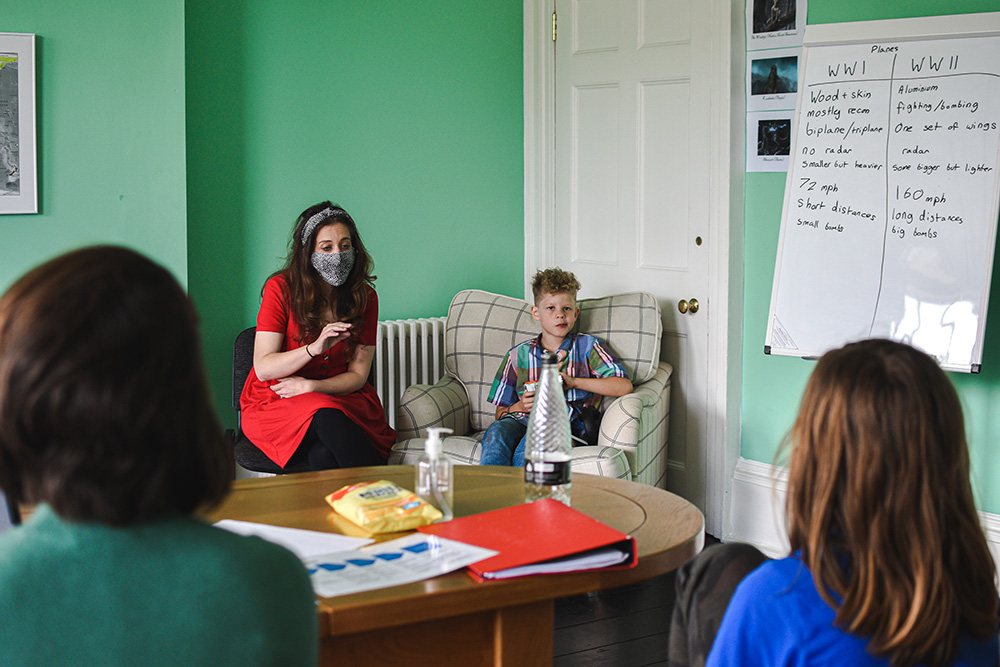I’ve been thinking about writing this blog post for a long time, but it’s such a big and personal issue, I hardly knew where to start. The issues surrounding special needs and neurodiversity are as broad as they are complex and they have been such a big part of my life for so long, not only is it hard to know where to begin, it’s hard to limit what I have to say to a few short paragraphs.
I grew up in a family that was about 50% autistic, with ADHD, dyslexia and dyspraxia also being common household terms, and now I also find myself a mother to children with additional needs. It’s never been an easy life. Just today I made the decision to cancel something I’d been looking forward to because I forgot to prewarn my autistic child and could see in his face it was going to be too much. Yet I really can’t imagine what it would be like to live life without special needs being always at centre stage. Perhaps it would be easier, but I can only imagine it being somehow devoid of colour and depth.

Living life surrounded by vulnerable children and adults has always been something of a double-edged sword. I’ve seen the best of humanity, with people who really go the extra mile to reach out and make the difference, but I’ve also seen how a lack of understanding and inadequate provision in and out of the school and employment system have added hurt to people who really just needed support and understanding.
You will perhaps not be surprised to learn that I find myself today working in the SEND team at East Kent Sudbury. Though we are not, and never will be, a specialist SEND provision, like other alternative settings we find a large percentage of our applicants come with some kind of additional need. This has been the source of much discussion among staff as we consider new applicants. We’re not special needs experts. How much additional need can we accommodate? At what point are we overstretching ourselves? When is a particular need beyond our ability to manage? None of these are easy questions when you’re piloting the first setting of your kind in the UK! Furthermore, we often find that children who were struggling in mainstream and considered very high need come to us and actually need very little support as the ability to manage their own time and self-regulate means that the needs become less pronounced. Others, who weren’t considered to have special needs in a mainstream setting, come to us and find the lack of enforced structure quite difficult to navigate, and actually need a lot more support than we could have anticipated prior to enrolment.
At East Kent Sudbury, we never ask a child with ADHD to sit still and be quiet. We never ask an autistic child to stop stimming. Why should we? This is a place for children to come and feel safe to be their authentic selves. That’s not to say we don’t have hurdles to overcome with our SEND students though! The sort of questions we regularly ask ourselves here are as follows:
What happens when the needs of a SEND student come up against the needs of someone else? What happens to your right to freedom of movement, for example, when you inadvertently sit in the seat that *that* autistic child *always* sits in at this time? What about your right to focus on what you’re doing when the child with ADHD won’t stop clicking their pen and ten seconds after you ask them to stop, they’re tapping their feet under the table instead? Harder still, what about when two SEND students with different profiles have conflicting needs? This is when equality is at its hardest, when all the things we would usually consider to be clear become suddenly very murky. What about when the child with autism can’t stop stimming in the meeting and the child with ADHD can’t concentrate when there are distractions? How do we balance those needs? Is it even possible?

My absolute favourite thing about my job is unpicking these intricate questions and digging deep to find the needs behind the behaviour and trying to come up with a creative solution. My experience is that when your language and perception is able to fully make the shift from behaviour to needs, what was once black and white becomes a glorious technicolour of individuality, personality and vulnerability. When that shift happens, when it really becomes ingrained in your mind, it’s almost impossible to go back. I can’t look at a child having a meltdown without the pang of empathy anymore. And the beauty of true SEND inclusivity is that these principles don’t stay with one person. They’re infectious, with staff, SEND students and those without additional needs all learning and growing in true acceptance and inclusivity every single day.
This isn’t to say that there is always a clear answer. There has to be a limit to our scope and our human ability to meet the needs of complex individuals, but I believe that every child that comes to us leaves an imprint that will remain with each of us forever, and those that we will always owe the most to, who have the biggest impact on our growth and understanding as individuals and as a community, will always be those who made us stop and question our thinking, who, though sometimes it may have been a difficult road, made us kinder, more compassionate, more down-to-earth people. This doesn’t come cheap. It doesn’t come without conflicts and trials and soul searching about what we can and can’t achieve in this project. But however difficult the process might be, I have never met a child with special needs that didn’t have more to give back in growth and character development than they needed in support.
My earnest hope is that through what we’re doing today and will continue to do through the years, every single child at EKS will one day be an adult whose eyes are open to need and to the broad spectrum of humanity that exists in the world, for whom judgement and stigma are things to be called out and challenged, not adapted to, so that they can be a part of changing our culture for the better.
Perhaps I’m an idealist, but I believe that a small number of students who are truly empowered to use their voices for good are going to be a force to be reckoned with some day. Besides, as anyone with ADHD seems to ask instinctively, whoever changed the world by standing still?


Hi I just want to say thank you for taking the time to articulate this so well. I feel you are describing my parenting journey in general and I sometimes wonder if I’m the only one finding this balancing of needs so hard and so rewarding. It must be so challenging to meet the needs of so many. Thank you and well done, the work you do is so important, if not the most important.